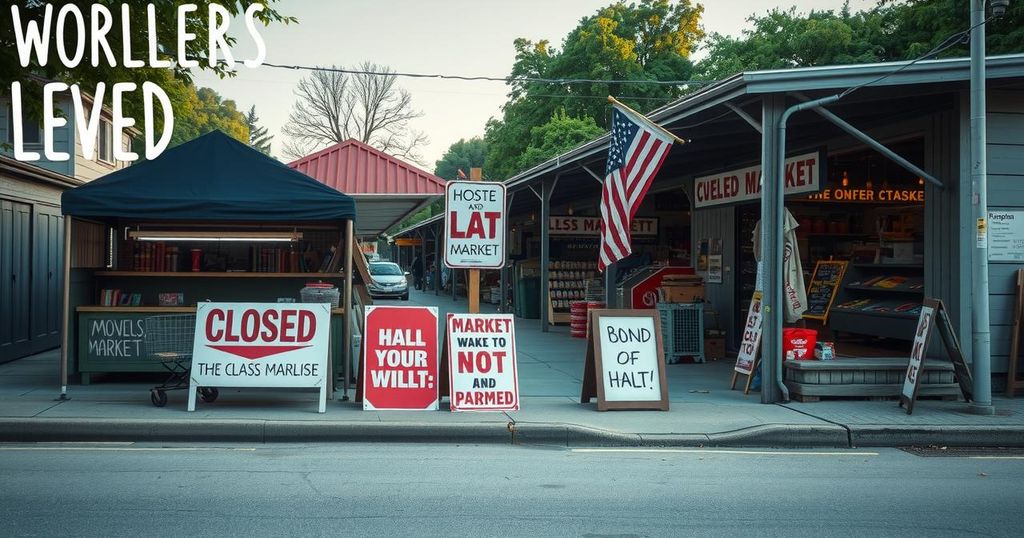Youth Protests Erupt in Kuajok Over Recent Killings of South Sudanese Nationals

On January 17, 2025, angry youth shut down the Kuajok market in Warrap State, South Sudan, by looting and vandalizing Sudanese shops. This protest was triggered by the recent killings of South Sudanese nationals in Sudan. Although the police intervened, no casualties were reported. State authorities are now working to protect traders amidst escalating tensions.
On January 17, 2025, a group of enraged youth descended upon the main market in Kuajok, the capital of Warrap State, causing significant disruption by looting shops and vandalizing properties owned by Sudanese traders. This unrest was incited by the recent brutal killing of South Sudanese nationals in Sudan’s Gezira State following a change of control in the town from the Rapid Support Forces to the Sudan Armed Forces. Eyewitness accounts indicate that the protests began around 6:00 a.m. local time, resulting in over 30 Sudanese shops being ransacked, while police forces resorted to firing in the air to disperse the crowds. Although there were no reported injuries, state authorities took measures to safeguard the Sudanese merchants.
The unrest in Kuajok highlights the broader regional tensions between South Sudan and Sudan, particularly in light of recent violent incidents in Sudan’s Gezira state. The catalyst for the protests appears to be the killing of South Sudanese citizens during a military engagement, sparking a nationalistic response from local youth. This situation reflects longstanding grievances and the complexities involved in the bilateral relations between Sudan and South Sudan, both of which have faced numerous challenges since their separation in 2011.
In summary, the recent protests in Kuajok underscore the volatile environment in the region following the tragic deaths of South Sudanese citizens in Sudan. The actions of the youth demonstrate a reaction to perceived injustices arising from cross-border conflicts. Authorities must navigate these tensions carefully to prevent further violence and protect both South Sudanese and Sudanese citizens living within their borders.
Original Source: sudantribune.com








